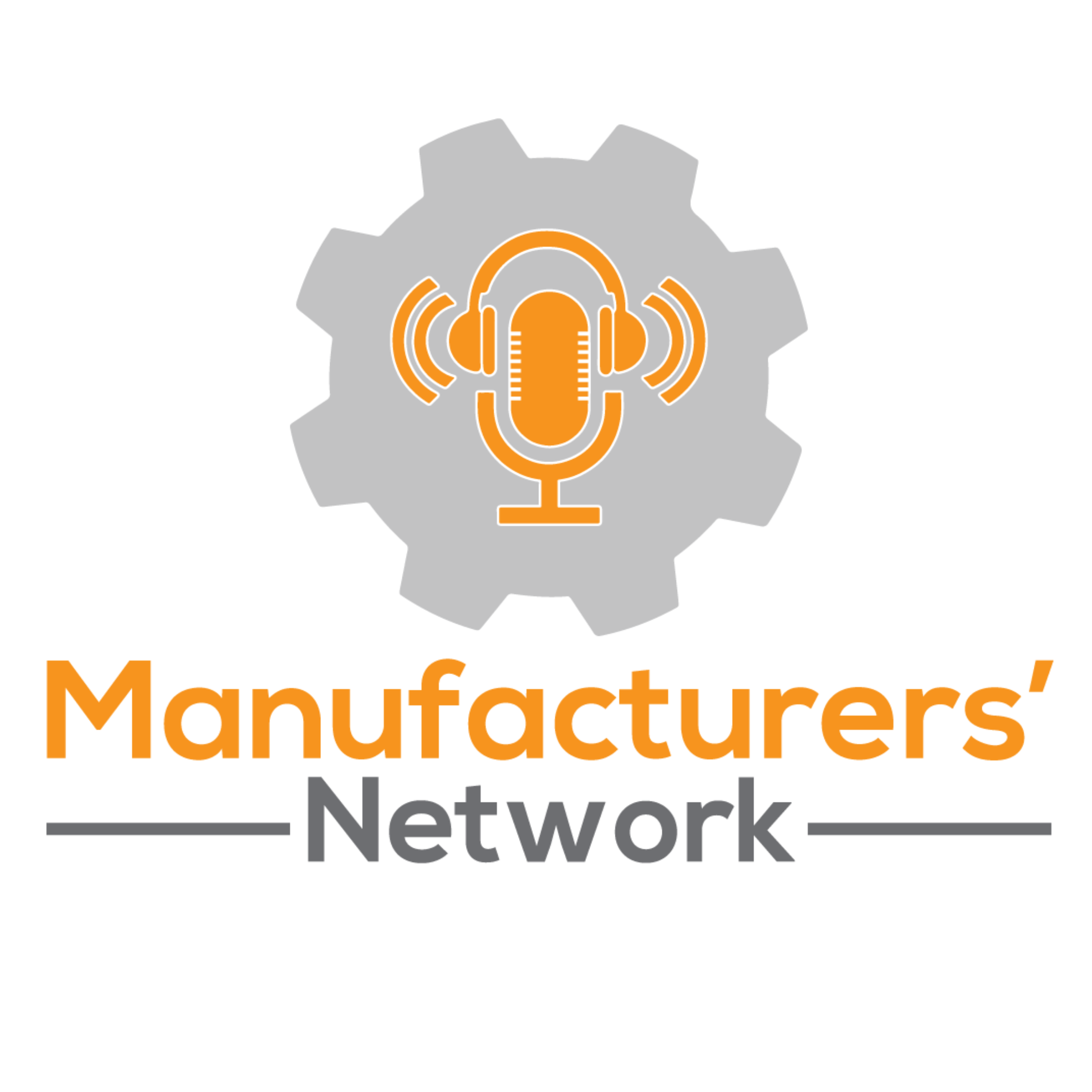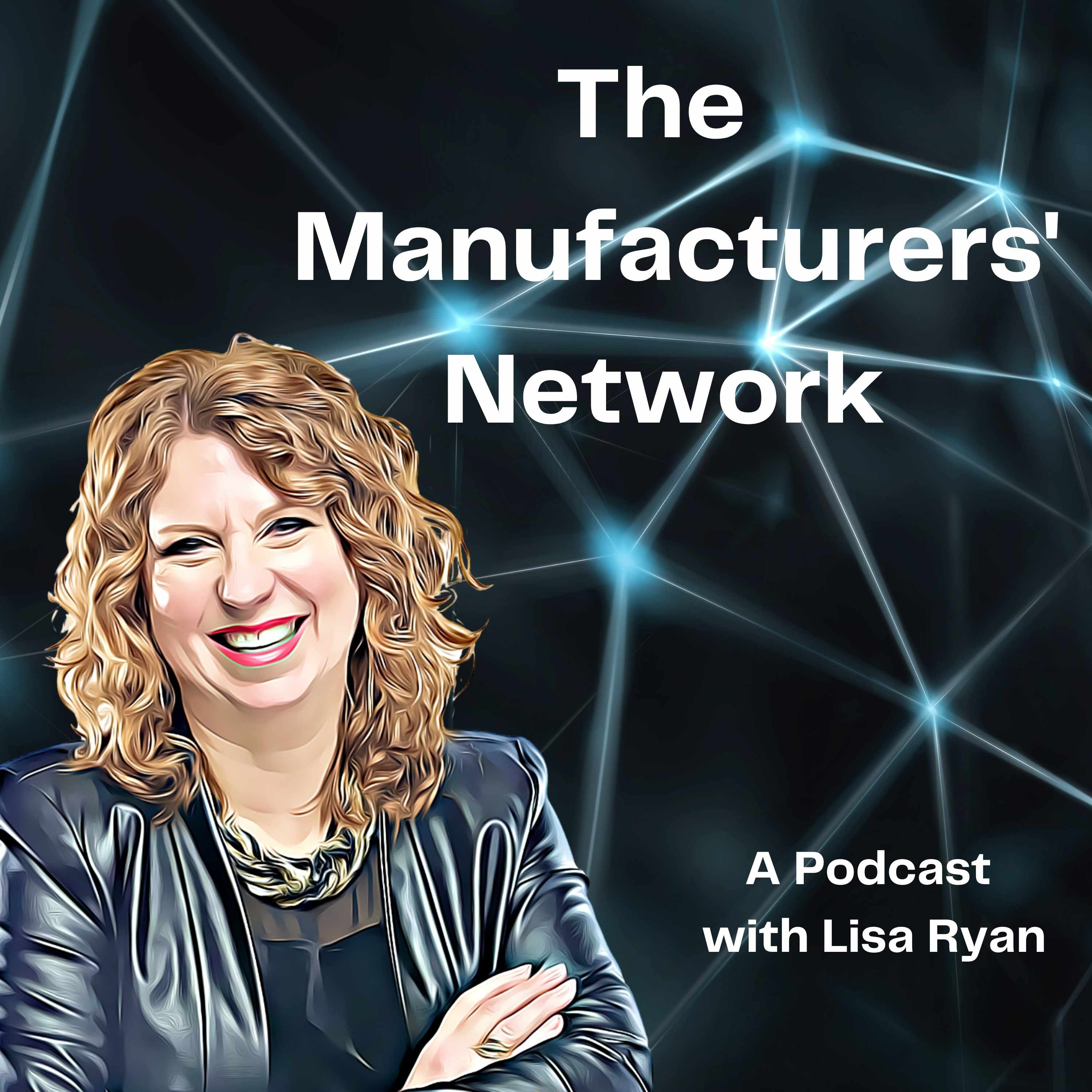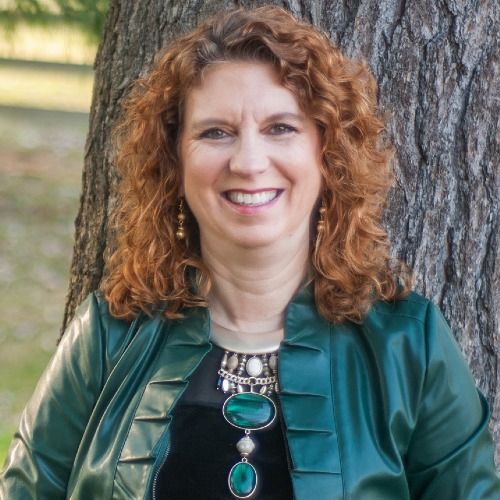Sales Strategies to Build Your Business in a Pandemic with Hector Diaz-Stringel
Connect with Hector Diaz-Stringel: hector.diazstringel@gmail.com
Transcript from the show:
Lisa Ryan: Hey, it's Lisa Ryan from the Manufacturers' Network Podcast. I'm excited today to introduce you to our guest, Hector Diaz-Stringel. Hector has spent most of his career in manufacturing. He's currently the President of ATA tools, and he's also been involved with chemicals, plastics, composites cutting tools in both Mexico and the United States and with companies working with companies both large and small. So, you're going to hear lots of different insights from different types of companies. So Hector, welcome to the show.
Hector Diaz-Stringel: Thanks for having me.
Lisa Ryan: Well, share with us a little bit about your journey and your career and how you ended up where you're at now.
Hector Diaz-Stringel: Well, without boring everybody with many details, I did start in Mexico, where I'm originally from, as an engineer. I was there for a couple of years, and then the company was looking to expand in Mexico. The company based out of Indiana went to Mexico to look for an engineer to train and send back down to open the market. It was a chemical company, and the plan was I was going to come here for a couple of years and then go back to Mexico, and 20 years later, here I am, so that never actually happened, which has worked out very well. The company was doing well. But they saw more opportunity in the US than in Mexico. So I help them build our plant in Ohio. That's how I ended up in Ohio.
I went there was a small privately held company. A larger organization acquired us. And then I moved to other places. I worked in companies public and private, tiny and huge, so I have different perspectives, including private equity at some point.
So I got to a point about five years ago, an Irish company was looking for somebody to run their US business. We got connected, and I like what they were doing and where they want it to go. And here we are. Five years later.
Lisa Ryan: Awesome. What are some of the things working right now, whether it be with your employees or your processes? Before the podcast, we talked about the toll that the pandemic has taken and how you've rebuilt your business. Why were you able to do that? Take us through that journey and what's been working for you.
Hector Diaz-Stringel: Many different things. Fortunately, again, we went through the lows of the pandemic, like every other business in the US, We were coming out of it, but many things that helped us get through that one is our employees. The 75-80 people who work with ATA are committed to seeing us succeed from a safety and health point of view and a customer service point of view and make sure that customers were not going to see a service disruption.
But we also have the product side of things. When the pandemic started and we realized it is a health issue, it will quickly become an economic issue. Having gone through the 2000-2009 collapses, we looked back to learn from what happened ten years ago and what we could apply to the situation we did. We put our plan together. It was clear to us that if we had a strong product and have a strong track record with our customers' quality and service, we were in an excellent position to make it through the crisis. We are also fortunate that we have a good financial footing. Not that 2020 was easy to get through with a drop in business. But we were on a solid footing, so we didn't have to worry about whether we would be able to pay our bills or have the cash flow to manage our business.
That allowed us to get down to basics. It was about quality tools and software. Let's make sure that whatever orders we have coming in that we are servicing them.
And let's make sure that we're ready for any other opportunities because companies that we compete against that may not be in that same situation where they may have a weaker position to begin with.
We were bound to make their customers nervous, and we saw some of those opportunities coming our way. We generated a lot of new business opportunities that are in play. In 2021, we will see a full year effect because we were ready to take on that new business. Many things had to come together, but we didn't put them together in 2020; they were already there. We just needed to be mindful of where our priorities needed to be.
Lisa Ryan: So in a market where you're talking about your competition and from a sales standpoint, it's hard because you weren't allowed in the plants. You know it wasn't easy to maintain those customer relationships that you had. So what were some of the things that you did or your sales team did your service team did to take care of the customers you had and put in those processes to attract new customers to you.
Hector Diaz-Stringel: Yeah, I think it started back in 2016-2017 after I joined the business. A new Director of Sales came on board, about a year later, and we spend those first couple of years putting a sales team together. We have salespeople dispersed throughout the US and Mexico. But then we have a network of manufacturer representatives as well as an extensive distribution network. So we spent a couple of years, putting all of that in place, making sure that we have the right people in the right places. And we're aligned with the right external partners. It all came to fruition. As you point out, even though our salespeople haven't been able to travel and see customers, other than those that they can go and drive to see if those customers are seeing vendors.
They had such good relationships that technology helps: zoom and cell phones help us stay close to those customers. So we were ready to start doing many webinars that we were already going to do in 2020, but this accelerated the effort for us.
So we were able to reach many people that our salespeople had a hard time getting in touch with in the past. But, but now nobody could go anywhere. Everybody was staying home and doing these types of interactions over zoom or the same kind of technologies, so we found that we could reach many more people than we would likely have been able to get have we've been traveling all over the US. So we generated a lot of business. The highlights for ATA, especially for the US business for 2020, were the number of new opportunities we could identify. Still, we were able to close business while being remote. I kept telling this to the Salesforce throughout the year, "I don't know how you're doing it. Keep doing it."
Lisa Ryan: Many positive things came out of this whole thing. It's not only the amount of money saved in time, in not getting on airplanes and traveling over the country and all over the world. But you now had the opportunity to connect with new customers that maybe it wouldn't have been worth your time to get on a plane and see and make that effort. So it sounds like you and your salespeople were buying into that and weren't afraid of the technology. So what a positive that was for you.
Hector Diaz-Stringel: Yeah, and I give them a lot of credit because they are salespeople. They want to be out there. They want to be talking to customers, and they want to see how the product works and troubleshoot issues that a potential new customer may be having. They can physically do any of these things, but they found a way to do it remotely and succeed. So that was one of the highlights of our business last year.
Lisa Ryan: Now, you mentioned that when you assembled the sales team five years ago when you came on board, you were looking for the right people. That's so important when it comes to culture. But what helped you determine who was the right person and getting that right fit for your company. So you do have those long term dedicated salespeople.
Hector Diaz-Stringel: Yeah, we had a Salesforce, and some of them were good individuals, but they were thinking more about retirement than what the next step in their career was going to be. So when you were going to have openings, regardless. But I was new to the business. I have to learn what type of business we had and what the opportunities were. But it was clear that we needed dynamic people - people who were hunting for new opportunities. We looked for motivated and incentivized people by finding a new opportunity and closing the business while maintaining the current business. We already had relationships with those customers and found opportunities for those customers as well. So it was more about driven individuals, not individuals that could be good at maintaining a sales territory.
We needed somebody that can maintain our territory. But more importantly, that was dynamic enough to learn whatever new products we keep introducing. We added a lot of new products to our portfolio. They needed to learn those products and become experts at them, but then go out and find opportunities where we can close sales, and it was a unique set of skills that we're looking for.
It took us a few tries to find the right individuals, and we found them by going out and hiring people external people. We also took flyers on internal individuals. For example, we have a marketing coordinator that wasn't in the commercial area, but a man sales at all. But we saw potential in here, and we will do the challenge of her, and she was very reluctant at the beginning because, again, sales can be scary. She's been very successful over the last three years, so it took a lot of experimenting and taking calculated risks. So far, it's worked out.
Lisa Ryan: Yeah, it sounds like it was something that has still kind of there that's keeping you up at night, what are, what are some of the things may be struggling with?
Hector Diaz-Stringel: Well, it definitely that the pandemic. I mean, we're struggling with it. We've been able to manage it successfully so far. And we're going to continue to be very vigilant about it, but it's all around us. And if that were to come into the facility. Of course, I'm going to be concerned about our employees and making sure that they can get through it without any significant issues, but their families and what that effect is going to have in our business and how we serve as a business. We have to manage and potential outbreak. So that has kept me up at night for the last ten months or so.
And the economy that the resulting economic issues that have come because of the pandemic. We are much more optimistic now than we have been over the last few months. We believe that in 2021 especially with the vaccines being available and the vaccination rates, things will start opening up, and the business will get back to normal levels. The new administration coming in, hopefully, will have some infrastructure, a plan put in place that will help our business. So there's a lot of things that we're hopeful are going to happen. These things do keep me up at night because the US economy needs these things.
Lisa Ryan: Right, exactly. And when we look at this podcast from a networking standpoint of just connecting manufacturers, what would be something that maybe you would either like support or ideas from your manufacturing colleagues to share with you.
Hector Diaz-Stringel: One of the things that we learned as we went through the pandemic was how our network helped us. Hopefully, we also help other companies figure out how to deal with something that nobody has seen since 1918. Nobody in the world was ready for something like this. So are we doing the right things? Are we overdoing it, or we're not doing enough? All we had was ourselves, and we're an Irish based company. So we have, I have counterparts in Ireland, Germany, and the UK. We have the facilities that we could bounce ideas off each other. But again, it's all within the ATA world.
But we reached out to our network and just tried to have a call. We can have a beer with the President of our company. What are you doing here, and what have you done that generated more connections with other companies?
I probably have met somebody in the company, but never had any interactions, but found out that they were open because they were also trying to figure it out. So, those, those type of it. They were quasi-informal networks that became more formal out of necessity but had those interactions in place. I like what you're doing with this podcast in connecting companies. The next time any of us has any challenge that we have never seen before, having that network to reach out to and being comfortable doing that is another thing that I thought to tell somebody that we don't know what to do.
Well, sometimes, you have to be vulnerable. It was very valuable to talk to our companies and, in some cases, validate that we're on the right track. In all cases, we get new ideas that we can think of and, in other cases, provide them with ideas. I think it made for a better situation for all.
Lisa Ryan: Awesome. When it comes to your areas of expertise or insight regarding sharing with your manufacturing colleagues, what would be a good tip or a good reason to connect with you?
Hector Diaz-Stringel: I have been in chemicals and plastics and cutting tools now. I like going into manufacturing facilities, even if it's something that I have never seen before, because you never know what kind of ideas you're going to extract from that that could apply to your own business or your own life. You don't know what you're going to find out.
Anyone who wants to connect is more than welcome to bring them over to see what we're doing. And, you know, maybe we'll give those people an idea that they didn't think of before that that I find valuable.
Lisa Ryan: Because sometimes we get so focused on just our industry where you could learn something from somebody in a completely different industry that's like, ooh, that's transferable, and that's the whole point of making those connections. If somebody wants to reach out and connect with you, what's the best way to do that?
Hector Diaz-Stringel: hector.diazstringel@gmail.com
Lisa Ryan: Alright. Awesome. Well, Hector. It was an absolute pleasure having you on the show today. Thank you for being here. I'm Lisa Ryan from the Manufacturers' Network podcast, and we'll see you next time. Thank you.


